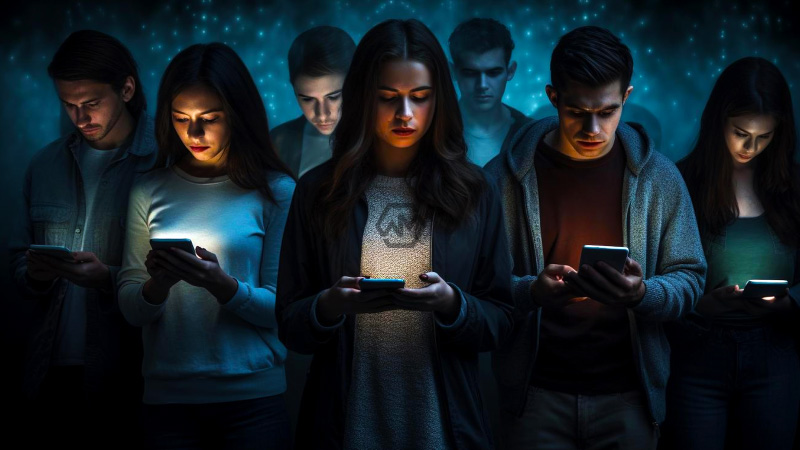- Telephones and online entertainment have turned into an omnipresent piece of daily existence.
- Likewise in January, California presented a bill pointed toward safeguarding kids from online entertainment fixation.
- Up to 95% of youth ages 13 to 17 say they utilize virtual entertainment, as per the report, with more than 33% saying they use it “continually.”
Another book has entangled the scholastic local area in a warm discussion about whether investing energy in cell phones influences youngsters’ emotional well-being and, provided that this is true, how.
Social clinician Jonathan Haidt’s “The Restless Age,” distributed last week, contends that the cell phone-driven “extraordinary overhauling of life as a youngster” is causing a “pandemic of psychological sickness.” He recommends four methods for combatting this: no cell phones before secondary school, no web-based entertainment before age 16, no telephones in schools; and focusing on genuine play and freedom.
Smartphones Affect Young People
Yet, however many scientists concentrate on their effect, there remains no simple solution to what precisely these advances mean for the psychological well-being of children and youngsters.
Haidt’s book rapidly has created a flood of both help and backfire, remembering a viral survey for the logical diary Nature that contends Haidt is adding to a “rising mania” around web-based entertainment and screen time that is useless in tending to the “genuine causes” of high schooler sadness and nervousness.
Throughout the last 10 years, researchers and lawmakers have developed progressively worried about the expected effect of virtual entertainment and screen time on youngsters. A Senate hearing in January barbecued the Chiefs of a few significant web-based entertainment organizations on different points connected with kid well-being, remembering their foundation’s effects on youth emotional well-being.
What’s more, last week, Florida Gov. Ron DeSantis endorsed into regulation a prohibition on kids under 14 joining virtual entertainment, which produces results next January.
Research connecting online entertainment use to unfortunate youth emotional well-being driven U.S. Top health spokesperson Vivek Murthy to warn last year of virtual entertainment’s likely damages to youngster and juvenile prosperity.
A few scholastics and researchers stay unconvinced that ebb and flow proof shows a causal connection between online entertainment and poor psychological wellness. Christopher Ferguson, a brain science teacher at Stetson College, said he accepts the worry is important for a repetitive senseless hysteria generally determined by more seasoned grown-ups.
He highlighted a repeating design in which troublesome new advancements — from television to video games to, all the more as of late, generative simulated intelligence — quite often go through times of ruckus over their likely damages. He said the development of worry around cell phones began more slowly than most, just taking critical shape in the last part of the 2010s.
Be that as it may, the toothpaste can’t be gotten once again into the cylinder. The children on cell phones and virtual entertainment will utilize those innovations well into advanced age, Ferguson said, and it’ll be their chance to “go ballistic” when an innovation takes steps to uproot their propensities.



